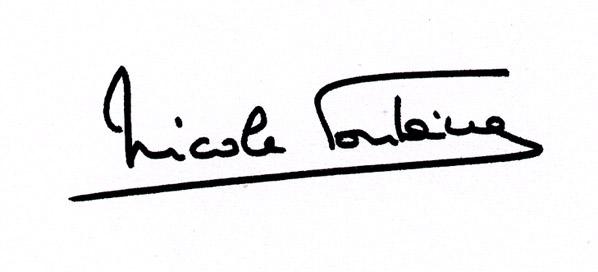Biography
Nicole Fontaine was born on 16 January 1942 in Normandy. She received her Law degree in 1962 and was awarded both a diploma from the Paris Institute of Political Studies in 1964 and a doctorate in public law in 1969. She is registered to practise as a lawyer in Hauts-de-Seine.
On a national level, Fontaine was responsible for relations between the private education sector and the public authorities at the Secrétariat général de l'Enseignement catholique (Catholic Education Secretariat), in the capacity of legal adviser, then of Deputy Secretary-General from 1972 to 1981 and chief representative from 1981 to 1984.
Fontaine passed away on 17 May 2018 in Neuilly-sur-Seine.
Political Posts held
• 1975-1981: Member of the National Education Council, France (member of its standing committee from 1978 to 1981)
• 1980-1984: Member of the Economic and Social Council
• 1984-1989: Elected Member of the European Parliament
• 1989-1994: Re-elected Member of the European Parliament and elected Vice-President of the European Parliament
• January 1994: Became permanent member of the Conciliation Committee
• 1994-1999: Re-elected Member of the European Parliament for a third term
• July 1994: Re-elected Vice-President of the European Parliament, becoming first Vice-President
• January 1997: Confirmed first Vice-President of the European Parliament; co-chaired the Conciliation Committee with the President-in-Office of the Council of Ministers
• 1999-2004: Re-elected Member of the European Parliament
• 1999-2002: President of the European Parliament (elected by a majority of the votes cast in the first round of voting)
• June 2002-March 2004: Junior Minister for Industry in the government of Jean-Pierre Raffarin, at the Ministry of the Economy, Finance and Industry, France
• 2004-2009: Re-elected Member of the European Parliament
What's in the Archives
Within the archives of the Office of Nicole Fontaine, over 3,700 items are arranged more than 500 files dealing with specific issues and activities that characterised the President's term of office. These fonds contain electronic documents in addition to documents in hard copy.
Administrative and legal tasks
PE5 P1 A00/ADJU
This group of series comprises the documents on relations with the human resources service, in particular the trainees section. The series also includes the work carried out in cooperation with the Legal Service (organised chronologically and thematically).
Political Tasks: Internal
PE5 P1 B00/RINT
This series covers internal policies and consists of three series that correspond to the activity of the Office of the President, particularly notes and mail prepared, received or compiled by the Office and various press reports. A group of documents entitled 'Operation: a currency for Europe' reveals one of the high points of her term of office, along with the various files on her positions, grouped together by topic. The second series relates to the organisation of the activities of the Conference of Presidents, the Directorate-General responsible for committees and delegations, and the parliamentary committees. The third series covers the Office's relations with Members and the files are organised in alphabetical order.
Political Tasks: External
PE5 P1 C00/REXT
The second organic series is related to external policies and comprises a first series on the President's activity as representative of the institution abroad, via a set of chronological files concerning her speeches. The next series deals with visits and public relations of the Office of the President, arranged by topic. The third series concerns more specifically Parliament's interinstitutional relations with, inter alia, the European Commission and the European Council. It provides details, too, of the meetings between the different European institutions. The fourth and fifth series relate to the relations between the Office of the President and the Member States and between the Office and third countries, respectively. The documents, primarily correspondence, are arranged by country or by 'correspondent'. Finally, the last series deals with the topic of international forums, notably the organisation and functioning of the EuroMed Forum.
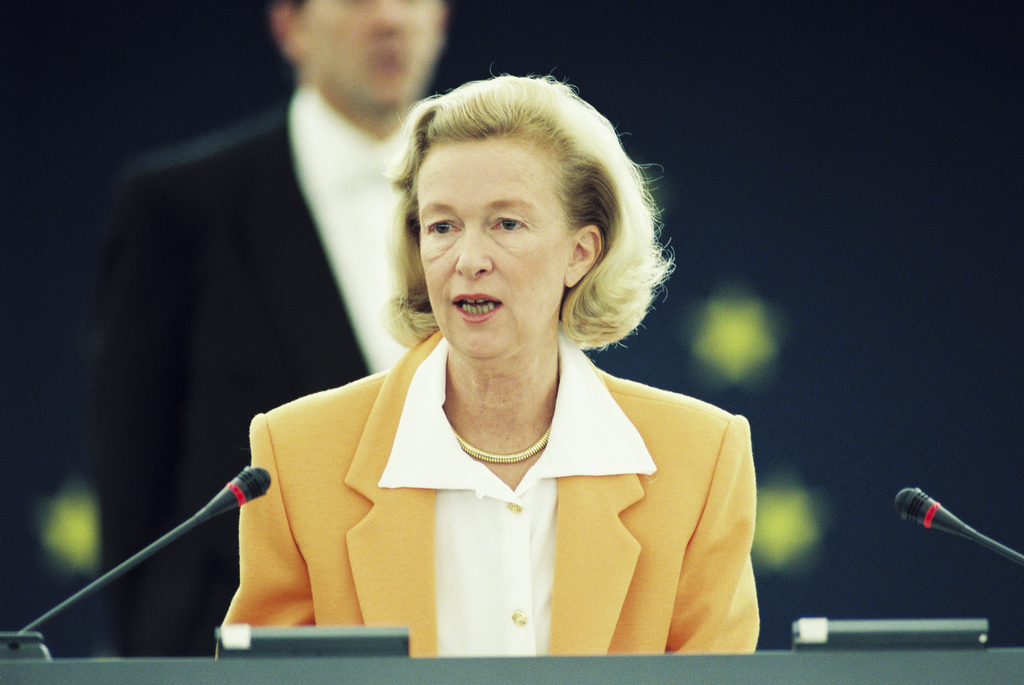 EP President Nicole Fontaine during a plenary session in Strasbourg in October 1999 © European Communities 1999
EP President Nicole Fontaine during a plenary session in Strasbourg in October 1999 © European Communities 1999
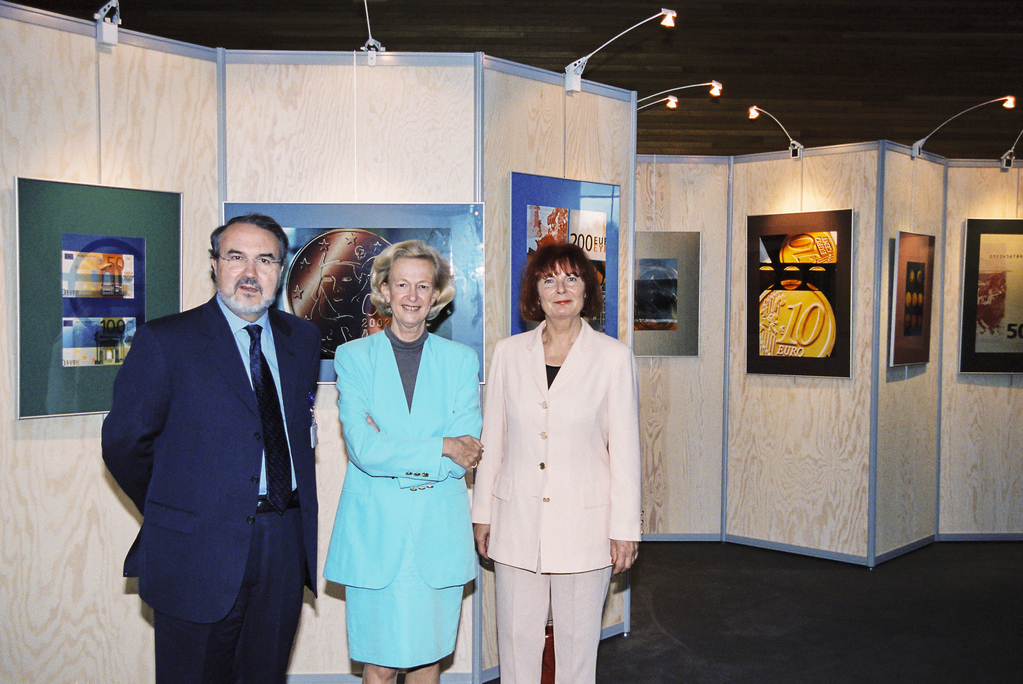 EP President Nicole Fontaine (C) attends the launch of an exhibition on the Euro. Photo with Pedro Solbes Mira (L) and Christa Randzio-Plath (R) © European Communities 2001
EP President Nicole Fontaine (C) attends the launch of an exhibition on the Euro. Photo with Pedro Solbes Mira (L) and Christa Randzio-Plath (R) © European Communities 2001
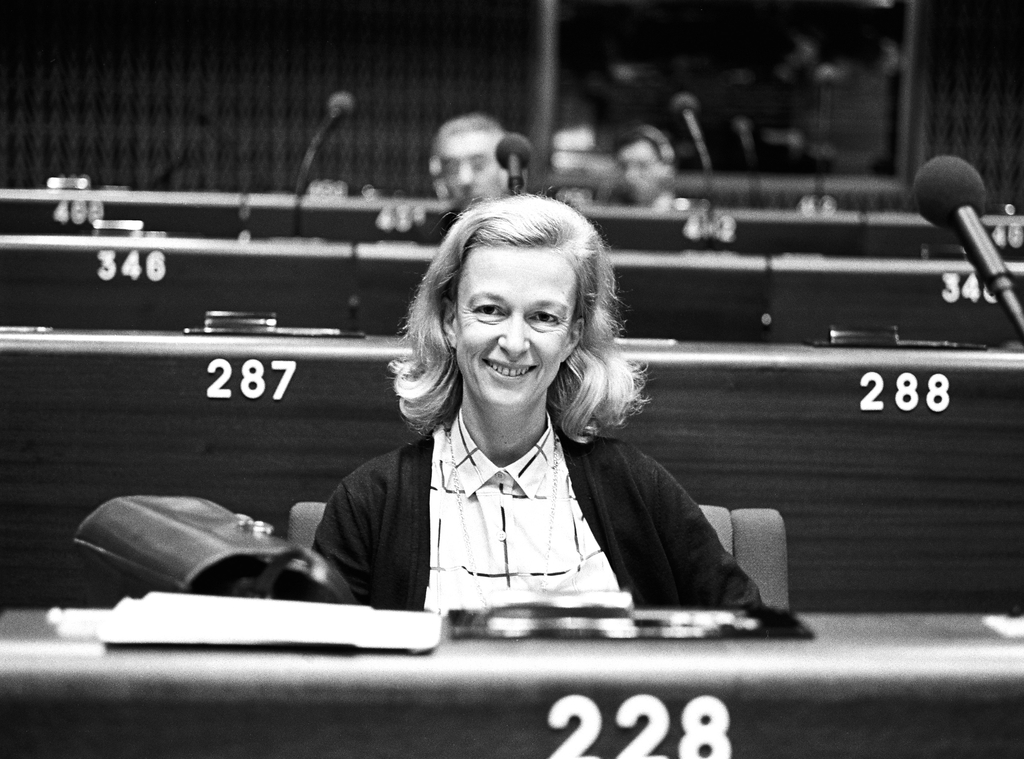 MEP Nicole Fontaine during a session in Strasbourg in October 1984 © European Communities 1984
MEP Nicole Fontaine during a session in Strasbourg in October 1984 © European Communities 1984
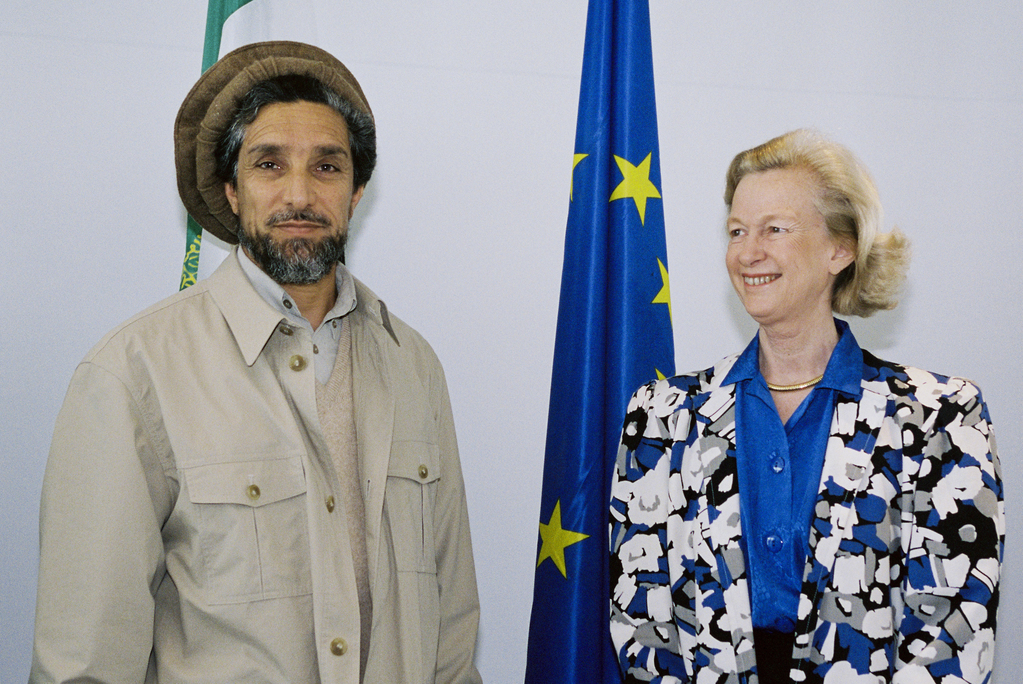 EP President Nicole Fontaine (R) receives Ahmad Shah Massoud (L) in Strasbourg © European Communities 2001
EP President Nicole Fontaine (R) receives Ahmad Shah Massoud (L) in Strasbourg © European Communities 2001
